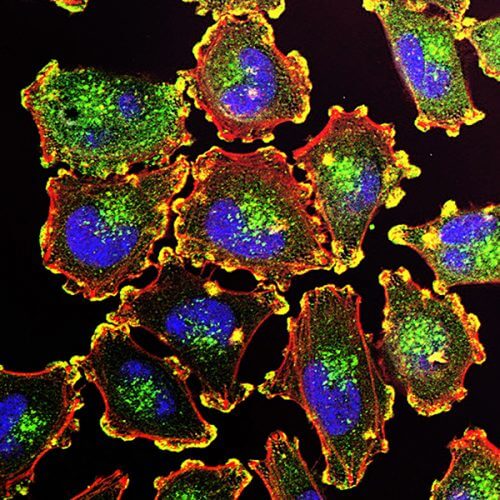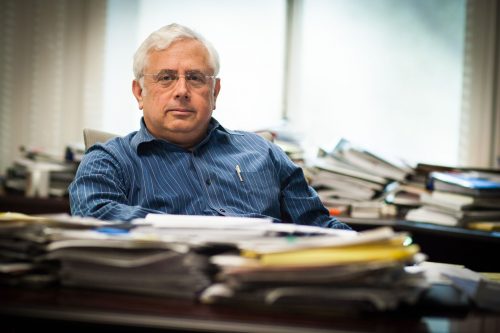The discovery paves the way for identifying cancer patients who will respond well to treatment with inhibitors PRMT5 - An enzyme that encourages the development of cancer cells. The research was led by Prof. Zeev Ronai, Head of the Integrated Center for Cancer Research at the Technion (TICC)

A new study by Prof. Zeev Ronai from the Rapaport Faculty of Medicine and head of the Integrated Cancer Research Center at the Technion (TICC), reveals for the first time the critical role of a protein called SHARPIN in the development of cancerous tumors.
The article, recently published in the journal The Journal of Clinical Investigation, shows that sheparin plays a central role in controlling PRMT5 - an important enzyme involved in cancer development. Today, attempts are being made to inhibit the activity of PRMT5 in cancer patients, but the new discovery, which indicates the role of serifin in the control of PRMT5, Makes it possible to identify the groups of patients in which there is a delay PRMT5 is expected to be more effective.
The article links sheparin to two of the essential processes in the function of the protein in the cell - methylation and ubiquitination. Methylation is a biological process that silences genes and thus affects the function of functions in the protein. Ubiquitination leads to the breakdown of disordered proteins so that they do not harm the function of the cell, the organism and the tissue. The two mentioned processes have been studied a lot, but in the current study it turns out that the interrelationship between them is of great significance in the development of the cancerous tumor.

The main protein studied by the research group led by Prof. Ronai is sherpin. The researchers discovered that many types of cancer - including melanoma, prostate cancer, breast cancer and lung cancer - are characterized by a high level of sheparin. Furthermore, they showed that inhibition of this protein suppresses pathways that accelerate the development of cancer.
The current study reveals as mentioned the role of sheparin in the control of PRMT5. Sherpin, it turns out, dictates the activity of PRMT5 and its involvement in protein methylation. According to Prof. Ronai, "Sharfin adjusts the activity of PRMT5. In other words, it is a kind of navigator that shows PRMT5 where to go and thus determines which proteins will be methylated. The analysis we performed makes it possible to assess the level of the patient's future response to treatment with PRMT5 inhibitors: when the level of sheparin is low, the treatment is expected to be more effective."

The study was carried out in collaboration with researchers from the Sanford-Burnham Medical Research Institute in San Diego (SBP) along with Associate Professor Yongsu Kim and researchers at Shantou University in China. This is the first joint research between the Technion and Shantou University, and it was partially funded by the joint research program of the two universities. Prof. Ronai, head of the Integrated Center for Cancer Research at the Technion (TICC) and chief scientific advisor at the Sanford-Burnham Medical Research Institute in San Diego (SBP), won a lifetime achievement award from the World Association for Melanoma Research last year.SMR)
The Integrated Center for Cancer Research at the Technion is the first entity of its kind in Israel, which will merge the extensive knowledge and extensive experience gained at the Technion and its affiliated medical centers in the fields of oncology medicine.

3 תגובות
Kudos to the Technion, the Technion's level of research exceeded the universities in Israel by several levels.
Is sheparin a protein that comes from food sources?
PRMT5 has been shown to be effective for the indication of various types of cancer. With the addition of an antidote of PRMTG357′ and some inductions of PRMD1984 you can use Artemisia and the rest is history…………